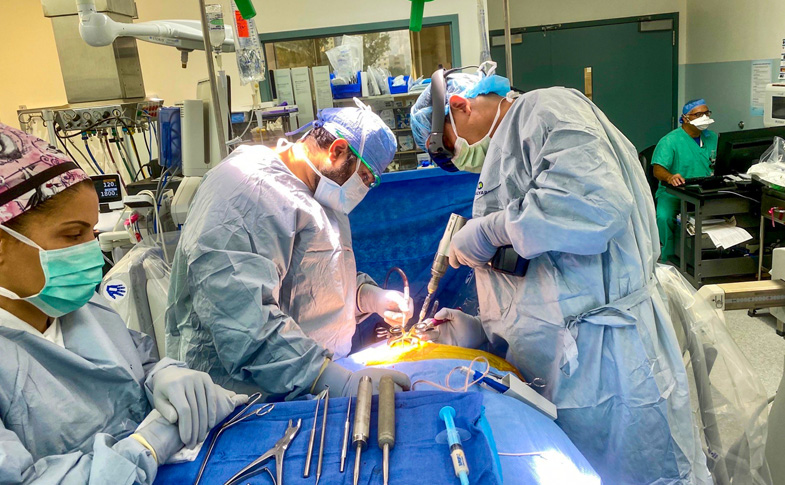Crews prepped for vaccines’ arrival
In August 2020, UHealth initiated planning for vaccine distribution by assembling a multidisciplinary COVID-19 vaccine taskforce. Over a 10-day period in December 2020, crews from across the health system worked in concert with construction crews to prepare a temporary structure behind UHealth Tower to ensure the entire vaccination process was safe and efficient. On Dec. 15, the first front-line UHealth employees rolled up their sleeves. By the end of April, UHealth had vaccinated more than 31,000 people with more than 60,000 injections that included first and second doses and the one-dose Johnson & Johnson vaccine.
The process was nimble enough to adapt to ever-changing rules yet smooth and efficient for anyone scheduling and arriving for vaccines. Throughout the vaccination rollout, Dr. Natasa Strbo, assistant professor in the Department of Microbiology and Immunology, continued to work with a North Carolina company called Heat Biologics on a different type of next-generation vaccine. Strbo and her collaborators were busy generating cell lines and testing the vaccine in preclinical models, which have shown it is both safe and effective. The team is now pursuing more sophisticated preclinical studies to pave the way for human trials.






